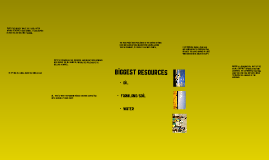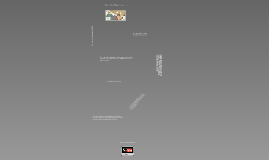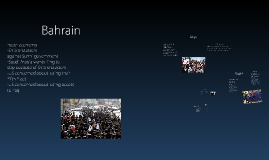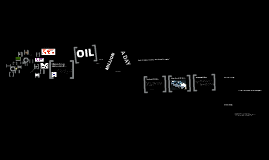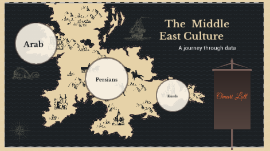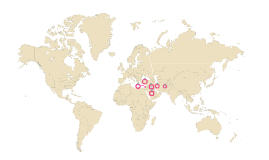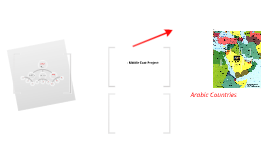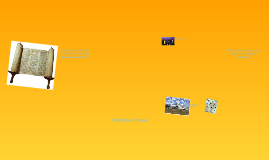Middle East Culture PowerPoint
Transcript: The Middle East Culture A journey through data Omari Lott Arab Dozens of rivers are found in the Middle East (Asia). Most are small, so here we highlight the four major ones, and offer a brief description. Amu Darya: This river flows from a high plateau in the Pamir Mountains of central Asia, across southern Tajikistan, forming its border with Afghanistan, then northwest, forming parts of the borders between Turkmenistan and Uzbekistan and on into the Aral Sea. It's (1,578 miles) (2,539 km) in length. In ancient times the Amu Darya was called the Oxus. It was part of Persia, and played a significant role in the military campaigns of Alexander the Great. Euphrates: From the Caucasus Mtns of Armenia, it flows southwesterly across east-central Turkey, then generally southeast through Syria and Iraq, ending in the waters of the Persian Gulf. It joins with the Tigris in southern Iraq, and from that junction continues on as the Shatt al Arab. Overall it's (2,235 miles) (3,596 km) in length, and is certainly the longest river in the Middle East. Historically important in ancient history, the once great city of Babylon stood on its banks. Indus: It begins in the high mountains of Tibet (southwestern China), flowing northwest through the Jammu & Kashmir region of India and Pakistan, then generally south through Pakistan, ending in the Arabian Sea. The Indus, through a series of dams and canals, provides much of the irrigation and power for central Pakistan. It's (1,800 miles) (2,896 km) in length. Tigris: Rising in the mountains of southern Turkey, the Tigris flows southeast through Iraq, where in the southern part of that country it merges with the Euphrates to become the Shatt al Arab, which then flows to the Persian Gulf. The river has numerous small tributaries running from its eastern bank, and is (1,180 miles) (1,899 km) in length. Jordan faces challenges at the international, regional and domestic levels. There is a significant shift under way in the conduct of international politics, where international relations are increasingly based entirely on economic interest. A country like Jordan, totally dependent on its allies, needs to revise its position and approach based on these changes as the underlying value of its perceived political alliances have changed completely. There is limited leverage to be gained from political advantage, as such Jordan needs to innovate and create new opportunities from new alliances based on economic pragmatism. Struggles Persians "Jordan's strategic support is Israel,” said David Hacham, an Arab affairs expert at the Israeli Defense Ministry. "We are the factor that enables the survival of the regime in Jordan.” Jordan's relationship with Israel provides the Hashemite kingdom with the Western security blanket it needs to keep its economy strong and fend off enemies both foreign and domesticFor its part, Israel benefits from close security cooperation and intelligence sharing with Jordan. In April, for example, Jordanian officials arrested a domestic Hamas cell and seized a cache of missiles, explosives and other weapons they said was smuggled into the kingdom.In addition, Jordan's peace with Israel gives the Jewish state the benefit of not having to worry about attacks along its longest border, a span of more than 200 miles. Jordan also represents a buffer against invasion of Israel by hostile armies to the east, such as those of Iraq, Iran or the Persian Gulf states. Competitive Competitors Jordan needs a complete rethink and revision of its vision for the future and state a clear agenda with policies that will achieve those goals, across domestic and foreign policy. This needs a new approach to how policies and positions are formed, especially foreign policy as the regional and international landscape is shifting. If Jordan does not reposition and build new alliances based on mutual economic interest in order to drive domestic economic growth and development, then it will be left behind and the people will suffer. Conclusion Kurds






